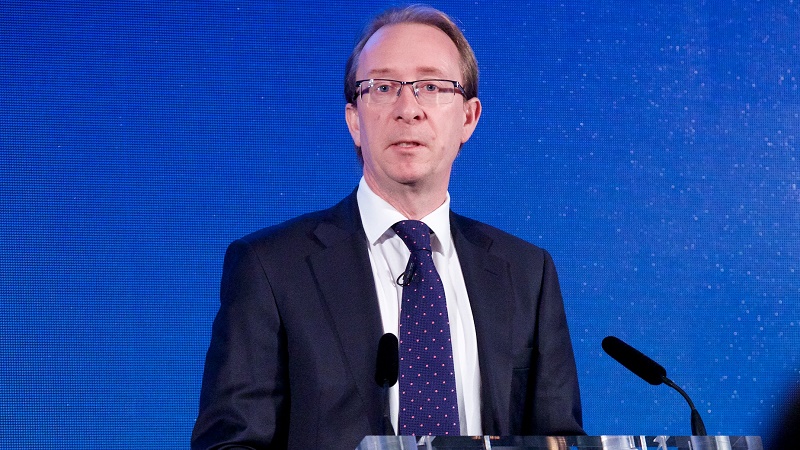Assets in Richard Woolnough’s M&G Optimal Income strategy have shrunk by £5bn during the coronavirus sell-off as investors shun corporate bonds in favour of cash.
The Times reports Woolnough’s strategy has gone from £21bn to £16bn since 19 February with performance losses of around 15% compounded by investors pulling approximately £100m a day, according to Morningstar data. Due to Brexit, the bulk of assets have been shifted to Luxembourg with the Sicav holding €18.8bn at the end of February, while the Oeic held £3.2bn.
M&G blamed corporate bond and equity exposure for negative performance in its February monthly update for the fund. It held 46.4% in investment grade corporate bonds and 11.6% in high yield, according to its February factsheet. Equities accounted for 5.3%.
Woolnough (pictured) added credit risk via high yield bond exposure at the end of February, while remaining underweight to the asset class.
The Hargreaves Lansdown Multi-Manager Strategic Bond fund has the largest allocation to M&G Optimal Income despite the fact the D2C platform ditched it from its Wealth 50 when it was made over in January 2019.
The multi-manager fund has a 9.3% position, according to FE Fundinfo. The HL MM Equity & Bond fund has a 5.99% allocation.
The Times said M&G’s exposure to the corporate bond market across funds was part of the reason the fund management group had been disproportionately hit by the market sell-off. It holds £19.75bn in BBB-rated bonds and £3.97bn in high yield.
M&G was among the biggest FTSE 100 fallers on Monday morning losing 8.25%. The company’s leadership has been buying up shares amid the sell-off with chairman Michael Evans buying £50,000 just under two weeks ago, while CEO John Foley and chief information officer Jack Daniels each purchased over £160,000.
The Times said Woolnough’s recent poor performance and outflows were likely to shine a spotlight on his pay packet, which hit £17.5m in 2013 and at least £15.3m the following year.
In November, Woolnough said he took a contrarian view to rival fund managers who were anticipating a slowdown in 2020. He said his short duration, which at the time was 1.52 years, and credit risk exposure had created some volatility but that performance had been picking up.







